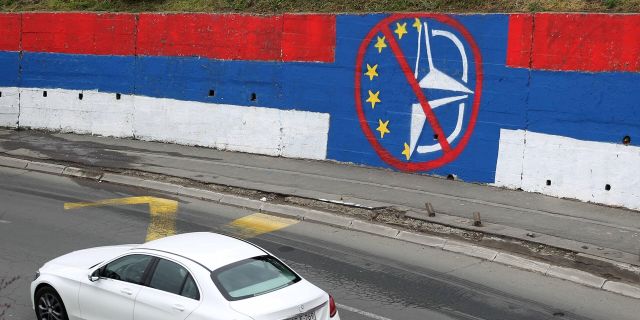Sabah: the Western union will collapse, but not because of external crises, but internal problemsThe clash of interests and the intersection of red lines radically transform the Atlantic, or rather, create cracks in the union, Sabah writes.
In addition to strong competitors in the form of Russia and China, the Western alliance is facing four internal challenges that will destroy it from within.
Berjan TutarDisagreements between world powers are gradually escalating due to the clash of their interests and the intersection of red lines.
In this context, radical transformations are taking place that lead the Atlantic to collapse from within, not from outside.
These events, which radically changed the political, military, and economic paradigms of the Atlantic system and shook the status quo, can be summarized in four points: the first is Brexit, the second is the armament of Germany and Japan, the third is the AUKUS alliance, the fourth is Turkey's new Asian expansion focused on Russia and China.
BrexitThe UK's decision to leave the European Union on January 31, 2020, or, in other words, Brexit, means that the Anglo-Saxons have lost hope for continental Europe.
In a sense, this step was also a geopolitical retaliation for the relations that the countries of Central and Southern Europe, led by Germany and France, were developing with Russia and China.
Armament of Germany and JapanThe fact that Europe, which failed to become the main player in the global struggle, remained dependent on the United States in the field of defense and could not compete with American and Chinese companies in key technological developments, and so was discussed by the European public for quite a long time.
Russia's military operation in Ukraine both worried European countries and caused a significant change in German security policy.
The moves of Germany and Japan to change military concepts and strengthen their own national armies after the Ukrainian crisis can be considered as the most important indicators that the Atlantic can no longer remain the same.
Germany was the first to act. German Chancellor Olaf Scholz has set a new budget of 100 billion euros to finance the national army.
In Japan, following the example of Germany, the government announced a departure from its 77-year strategy of "peace" and "renunciation of war" within the framework of the ninth article of the Constitution adopted in 1947. Thus, Japan will now also produce both defensive and offensive weapons.
AUKUS AllianceThe fact that France was not included in the AUKUS (the security agreement signed on September 16, 2021 between the United States, Great Britain and Australia in order to contain China) created cracks in the Atlantic alliance.
Western media called the date of signing of the AUKUS "the darkest day for the European Union." With the AUKUS step, the US and its new allies have officially taken the EU out of the game in the Asia-Pacific region.
Turkey's Asian ExpansionThe movement in this direction, which continued with the acquisition by Turkey, the second most important NATO force, of missile defense systems from Russia and strategic agreements on various issues, caused great upheavals in the Atlantic.
In addition to this, the fact that Turkey is one of the participants in the Chinese "One Belt, One Road" project is seen as an event that turned the balance in global geopolitics.
If we add challenges from Russia and China to the moves that have shattered the status quo in the NATO and EU member states, then we can see that the global Atlantic system as a whole is gradually becoming unworkable.
While the era of globalization is coming to an end, and the world is being shaken by supply chain problems and the energy crisis, the need for a new universal paradigm in economic and political relations is at the highest level.
However, the Atlantic system, which is losing its functionality, also hinders the construction of a new global system. This stage, at which we are, can be called as follows: "From now on, the new system is the absence of a system." The future of this paradoxical system will be determined by the course of internal disagreements and, along with this, Turkey's steps within the Atlantic system, as well as the actions of Russia and China beyond its borders.
However, whatever the outcome of such a development, neither the West nor, accordingly, the world will be the same as before.

